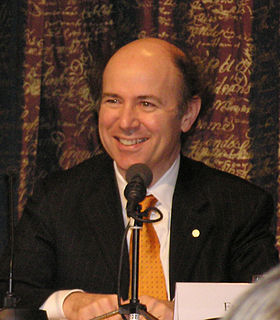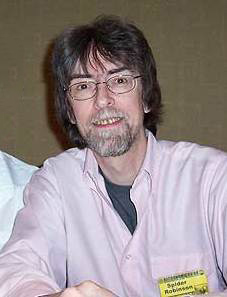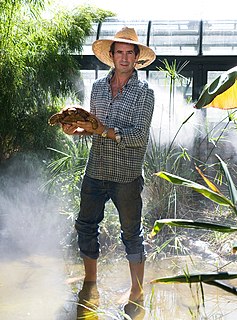A Quote by Richard P. Feynman
'Conservation' (the conservation law) means this ... that there is a number, which you can calculate, at one moment-and as nature undergoes its multitude of changes, this number doesn't change. That is, if you calculate again, this quantity, it'll be the same as it was before. An example is the conservation of energy: there's a quantity that you can calculate according to a certain rule, and it comes out the same answer after, no matter what happens, happens.
Related Quotes
There are two principles inherent in the very nature of things, recurring in some particular embodiments whatever field we explore - the spirit of change, and the spirit of conservation. There can be nothing real without both. Mere change without conservation is a passage from nothing to nothing. . . . Mere conservation without change cannot conserve. For after all, there is a flux of circumstance, and the freshness of being evaporates under mere repetition.
The page of my notebook was filled with many messy integrals, but all of a sudden I saw emerge a formula for counting. I had begun to calculate a quantity on the assumption that the result was a real number, but found instead that, in certain units, all the possible answers would be integers. This meant that areas and volumes cannot take any value, but come in multiples of fixed units.
Revolution is everywhere, in everything. It is infinite. There is no final revolution, no final number. The social revolution is only one of an infinite number of numbers: the law of revolution is not a social law, but an immeasurably greater one. It is a cosmic, universal law - like the laws of the conservation of energy and of the dissipation of energy (entropy).
We may lay it down as an incontestible axiom, that, in all the operations of art and nature, nothing is created; an equal quantity of matter exists both before and after the experiment; the quality and quantity of the elements remain precisely the same; and nothing takes place beyond changes and modifications in the combination of these elements. Upon this principle the whole art of performing chemical experiments depends: We must always suppose an exact equality between the elements of the body examined and those of the products of its analysis.





































